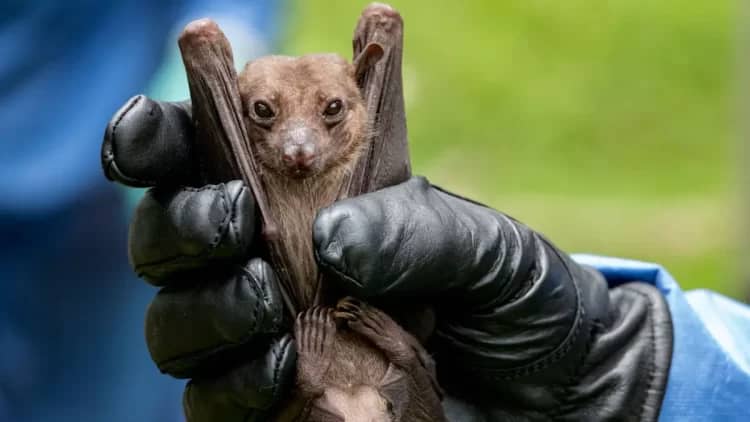Rwanda has commenced its vaccination campaign against the Marburg virus in response to an outbreak that has claimed 12 lives since it was declared on September 27.
Health Minister Sabin Nsanzimana announced the immediate start of the vaccination program during a press conference in the capital, Kigali.

The vaccinations will primarily target healthcare workers at high risk of exposure, including those working in treatment centers, hospitals, and intensive care units. Close contacts of confirmed cases will also be prioritized.
Minister Nsanzimana expressed confidence in the effectiveness of the vaccines, stating, “We believe that, with vaccines, we have a powerful tool to stop the spread of this virus.”
Currently, there are 46 confirmed cases of the Marburg virus in Rwanda, with 29 patients in isolation. Health authorities have identified at least 400 individuals who had contact with those infected.
The Marburg virus, similar to Ebola, is thought to originate from fruit bats and spreads through direct contact with bodily fluids of infected individuals or contaminated surfaces.
Without treatment, the virus can be fatal in up to 88% of cases, leading to symptoms such as fever, muscle pain, diarrhea, vomiting, and severe blood loss.
While there is no authorized treatment for Marburg, the Rwandan government has received vaccine shipments, including those from the Sabin Vaccine Institute, to aid in controlling the outbreak.
Past Marburg outbreaks have been documented in several African countries, including Tanzania, Uganda, and Ghana, according to the World Health Organization.
























































![[FREE FREE MONEY] Predict and Win a Guaranteed GH¢200 From Us EVERY WEEK](https://wordpress.ghanatalksradio.com/wp-content/uploads/2022/02/Predict-and-Win-Final-09-03-2021-218x150.jpg)
![[Predict & Win – 8th/Oct.] WIN A Guaranteed ¢200 From Us This Week](https://wordpress.ghanatalksradio.com/wp-content/uploads/2021/10/maxresdefault-16-218x150.jpg)
![[Predict & Win – 2nd] WIN A Guaranteed ¢200 From Us This Week](https://wordpress.ghanatalksradio.com/wp-content/uploads/2021/09/maxresdefault-50-218x150.jpg)
![[Predict & Win – 25th] WIN A Guaranteed ¢200 From Us This Week](https://wordpress.ghanatalksradio.com/wp-content/uploads/2021/09/maxresdefault-36-218x150.jpg)
![[Predict & Win – 18th] WIN A Guaranteed ¢200 From Us This Week](https://wordpress.ghanatalksradio.com/wp-content/uploads/2021/09/maxresdefault-23-218x150.jpg)








![[National cathedral] See full list of churches that have contributed since 2018](https://wordpress.ghanatalksradio.com/wp-content/uploads/2020/09/Ghana-National-Cathedral-GhanaTalksRadio-100x70.jpg)



